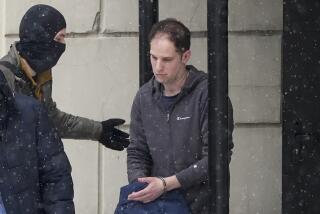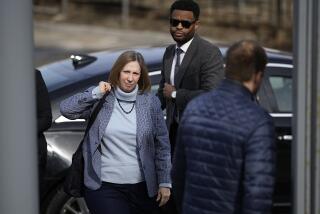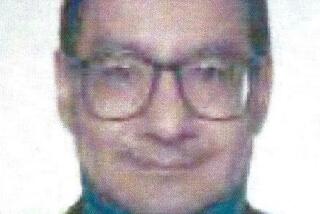Brian Kelley dies at 68; veteran counterspy broke Russian code



Notable music deaths of 2011 (Paul Hawthorne / Getty Images)


Notable deaths of 2010 (Wally Skalij / Los Angeles Times)

Notable sports deaths of 2011 (Harold Matosian / Associated Press)

Notable sports deaths of 2011 (AFP / Getty Image)

Notable sports deaths of 2011 (Diamond Images / Getty Images)

Notable film and television deaths of 2011 (Kevork Djansezian / Associated Press)

Notable deaths of 2010 (John Redman / Associated Press)

Notable deaths of 2010 (Louis Sahagun / Los Angeles Times)

Notable sports deaths of 2011 (Jonathan Ferrey / Getty Images)

Notable deaths of 2010 (Lawrence Lucier / Steinway & Sons via Getty Images)

Notable deaths of 2010 (Jim Dyson / Getty Images)

Notable deaths of 2010 (Mike Groll / Associated Press)

Notable deaths of 2010 (Michael Ochs Archives / Getty Images)

Notable deaths of 2010 (Bill Sikes / Associated Press)


Notable deaths of 2010 (Joe Brier / McClatchy-Tribune)

Notable deaths of 2010 (Liz O. Baylen / Los Angeles Times)

Notable deaths of 2010 (Wayne Risher / Associated Press)

Notable deaths of 2010 (Rick Bowmer / Associated Press)

Notable deaths of 2010 (John Gwillim / Associated Press)

Notable film and television deaths of 2010 (Bob Chamberlin / Los Angeles Times)

Notable deaths of 2010 (Rick Bowmer / Associated Press)

Notable deaths of 2010 (Stephan Agostini / AFP/Getty Images)

Notable deaths of 2010 (Robert Gauthier / Los Angeles Times)

Notable film and television deaths of 2011 (Nick Ut / Associated Press)

Notable deaths of 2010 (Anna Moore Butzner / Grand Rapids Press)

Notable deaths of 2010 (Christophe Ena / Associated Press)

Notable deaths of 2010 (Hillery Smith Garrison / Associated Press)

Notable deaths of 2010 (Mark Boster / Los Angeles Times)

Notable deaths of 2010 (Michael Ochs Archives / Getty Images)

Notable deaths of 2010 (Mustafa Quraishi / Associated Press)

Notable deaths of 2010 (Lawrence K. Ho / Los Angeles Times)

Notable deaths of 2010 (Karen Tapia-Andersen / Los Angeles Times)

Notable deaths of 2010 (Roald Berit / AFP/Getty Images)

Notable deaths of 2010 (Eddie Adams / Associated Press)

Notable deaths of 2010 (Charles Dharapak / Associated Press)

Notable deaths of 2010 (Alex Wong/Getty Images)

Notable deaths of 2010 (Karen Bleier, AFP/Getty Images)

Notable film and television deaths of 2010 (Dave Hogan / Getty Images)




Notable film and television deaths of 2010 (Bob Chamberlin / Los Angeles Times)
Veteran counterspy Brian Kelley, who broke a code on how Moscow communicated with its agents and was mistakenly hounded later by the FBI, died Monday at his home in Vienna, Va. He was 68.
Kelley died in his sleep of an apparent heart attack, his wife, Patricia, told the Washington Times.
Kelley spent 20 years with the Air Force Office of Special Investigations, doing counterintelligence work, until 1984, when he moved to the CIA.
While working in the agency’s counterintelligence office, Kelley unraveled a method used by Moscow to secretly communicate with its agents. That led to the discovery of State Department diplomat Felix Bloch, a suspected spy, but the investigation of Bloch was compromised.
“No one could figure out who would have tipped off the Russians,” Kelley later told the CBS-TV news magazine “60 Minutes.” “We had it so tightly held at CIA that only about seven people knew, and they eliminated everybody but me.”
When CIA counterintelligence officer Aldrich Ames was arrested as a spy for Moscow in 1994, the FBI began searching for a second mole and focused on Kelley because the Bloch probe had been compromised.
In August 1999, FBI agents questioned Kelley for hours in an effort to make him confess. Kelley refused and told the agents, according to the Washington Times: “Your facts are wrong. Your conclusions are wrong. Your underlying hypothesis is wrong.”
FBI agents continued to harass Kelley and his family for the next two years, sidelining his CIA career.
Kelley eventually was cleared after FBI agent Robert Hanssen, who had spied for Russia for years, was arrested in 2001. Kelley went back to work with the CIA and retired in 2006.
CIA spokesman Preston Golson told the Associated Press that Kelley kept the faith with his country and his colleagues.
Kelley was born Jan. 8, 1943, in Waterbury, Conn., and graduated from St. Michael’s College in Vermont, before joining the Air Force.
Survivors include his second wife, Patricia; three children from his first marriage that ended in divorce; four stepchildren; two sisters; and 10 grandchildren.
More to Read
Start your day right
Sign up for Essential California for the L.A. Times biggest news, features and recommendations in your inbox six days a week.
You may occasionally receive promotional content from the Los Angeles Times.
The Associated Press is an independent, not-for-profit news cooperative headquartered in New York City.
More From the Los Angeles Times
-
April 21, 2024
-
-
-






